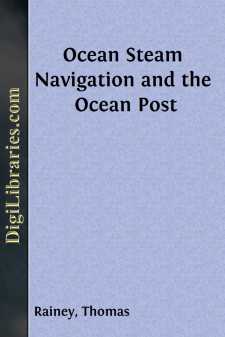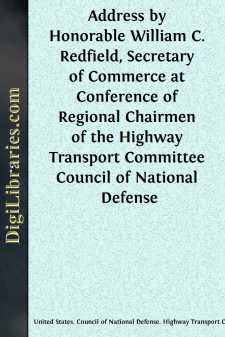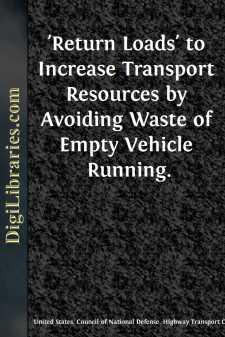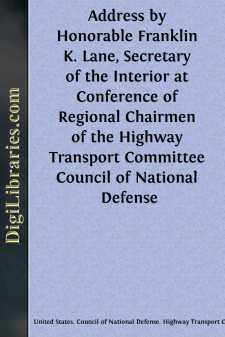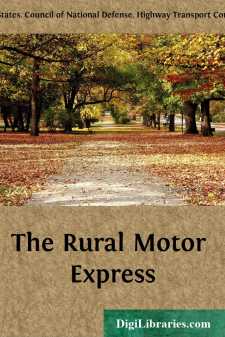Transportation
- Automotive 1
- Aviation 3
- General 5
- Navigation 4
- Railroads 10
Transportation Books
Sort by:
by:
Thomas Rainey
PREFACE. In offering to the Government and the public this little volume on Ocean Steam Navigation and the Ocean Post, I am conscious of my inability to present any new views on a subject that has engaged the attention of many of the most gifted statesmen and economists of this country and Europe. There is, however, no work, so far as I am informed, in any country, which treats of Marine Steam...
more...
by:
John H. White
American railroads of the early 19th century were cheaply and hastily built. They were characterized by inferior roadbeds, steep grades, sharp curves, and rough track. In spring, poor drainage and lack of ballast might cause the track to sink into the soggy roadbed and produced an unstable path. In winter this same roadbed could freeze into a hard and unyielding pavement on which the rolling stock was...
more...
Mr. Chapin and Gentlemen: It would be a truism to say that I have always been interested in transportation. It has always been a subject of keen interest to me, I presume, because I was born with it. By the fortune of birth I came to live in a region where transportation has been through every one of its stages in this country. If you go back into the history of the Colonies, you will find the two...
more...
PROLOGUEPART I THE ELEMENTARY PRINCIPLES AIR THEIR GRIEVANCES The Lecture Hall at the Royal Flying Corps School for Officers was deserted. The pupils had dispersed, and the Officer Instructor, more fagged than any pupil, was out on the aerodrome watching the test of a new machine. Deserted, did I say? But not so. The lecture that day had been upon the Elementary Principles of Flight, and they lingered...
more...
To increase the highways transport resources as one of the means of strengthening the entire transportation system of the country, and for the purpose of avoiding the waste incurred by running transport vehicles empty, return-load bureaus are established. These bureaus are a means of bringing together the shipper having goods to move and the operator of an empty vehicle which is possibly running to the...
more...
by:
Samuel Sidney
LONDON AND NORTH WESTERN RAILWAY. According to Mr. Punch, one of the greatest authorities of the day on all such subjects, the nearest way to Euston Station is to take a cab; but those who are not in a hurry may take advantage of the omnibuses that start from Gracechurch Street and Charing Cross, traversing the principal thoroughfares and calling at the George and Blue Boar, Holborn, the Green Man and...
more...
I did not come to-day with the idea of bringing you anything new. On the contrary, I have come here to get the inspiration which association with those from the outside gives. There is no hope for this place unless we can keep in contact with the remainder of the United States. In isolation we think in a vacuum, and it is only when we know what you are thinking of on the outside that we get the impulse...
more...
by:
John Randall
LEGEND OF THE SEVERN, WYE, AND RHEIDOL. (See Illustration on the Cover.) The Welsh are justly proud of their hills and their rivers; they frequently personify both, and attribute to them characters corresponding with their peculiar features. Of the Severn, the Wye, and the Rheidol, they have an apologue, intended to convey an idea of their comparative length, and also of the character of the...
more...
THE RURAL MOTOR EXPRESS. The transportation burden on the railroads and highways of the country has been tremendously increased by the war. There is a larger load to be carried, of manufactured goods, raw materials, and foodstuffs. Not only has production of manufactures, raw materials, and farm products increased, but it is now necessary to transport a much larger proportion of these goods over long...
more...
by:
Anonymous
The carbureter measures the fuel charges for the engine and automatically mixes them with the proper amount of air to form a highly combustible gas. The Marvel Model "S" Carbureter is of the automatic air valve, heat controlled type. Its outstanding advantages are: 1. Simplicity of construction and operation. 2. Quick starting in any weather. 3. Automatically controlled heat application to...
more...


